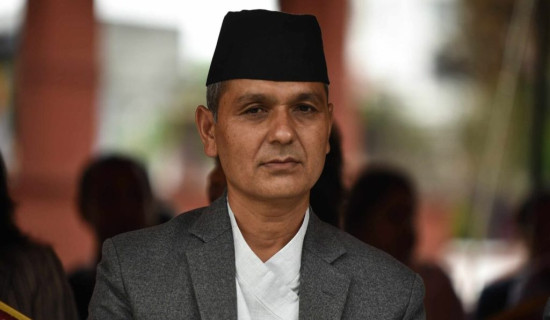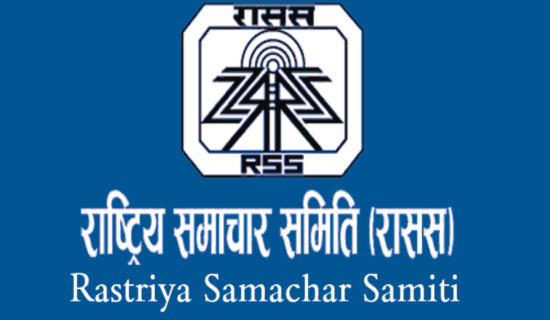- Thursday, 19 February 2026
Make Poll Manifestoes Realistic
Major political parties have tasked their respective panels in drafting the election manifestoes keeping in view the upcoming polls for federal and provincial parliaments. Needless to say, an election manifesto provides a list of policies programmes and strategies that a political party declares it will enact and execute if it is voted into power with the endorsement of the voters and constituents. The word “manifesto” itself originates from the Latin word "manifestum" which refers to a list of facts that are brought to fore and disseminated for public knowledge, information and consumption. It is a practice in democracies that each political party competing in the polls produces an official manifesto which offers the basis of its campaign and reaching out to the voters.
However, in the history, we do find that not all important manifestoes and declarations are written by political parties. Some famous examples of non-electoral manifestoes include the United States Declaration of Independence (1776), in which the American colonies asserted their independence from Great Britain, and the Communist Manifesto (1848), written by Karl Marx and Friedrich Engels, which outlined their vision of the communist political and economic system. During the modern days, manifestoes in deed serve a very important function in democratic system especially during the polls. They constitute the main way of telling voters and electors why they should give their vote to a particular political party.
Exhaustive manifestoes
It is due to this reason that elections manifestoes need to be written in a convincing style to make readers believe that the policies and programmes contained and explained in the document have been in their best interests. A manifesto is meant to be just a simple list of policy and programme ideas. But these days, political manifestoes tend to be lengthy documents which explain the party’s policies on a wide range of issues in greater detail. It is not the case of the Nepali political parties alone. Political parties especially in India, the United Kingdom and many other democracies are found producing lengthy and exhaustive documents as their manifestoes that promise both attainable and unattainable outlandish policies and programmes to impress and woo the voters and constituents.
A reading of the political manifestoes in democracies whether it is in Nepal, the US, India or the UK indicates that parties or candidates say about what constitute their policies, programmes and strategies. They give some kind of explanation and clarification as to what each policy and programme is trying to achieve and why that would be a good thing in order to persuade the voters to support the parties concerned. In fact, political parties should always be striving to develop their distinct image and brand. The political manifestoes, if designed properly, can help fulfill this objective of branding for political parties.
Generally, party manifestoes are found beginning with a title which tries to make the party sound appealing to voters. The title often contains some kind of reference to the core theme of the party’s election campaign. To take an example from the political manifestoes of the parties in the UK’s previous elections, the ruling Conservative Party’s manifesto was called an ‘Invitation to join the Government of Britain”. This title tied in with the party’s election slogan “We’re all in this together” by making it sound as if the voters would be treated as equal partners alongside the politicians if the Conservatives won the polls.
Similarly, according to the website sources, Labour Party manifesto was called “A future fair for all,” and its contents were grouped into such main policy areas as “rebuilding our economy”, and “a new politics”. The policies covering these different areas created a “package” which intended to appeal to all kind of voters they are targeting. However, in order for a manifesto to be taken seriously, the policies which it contains need to be practical and popular. Otherwise, it would fail in its purpose to help the party attract voters’ endorsement
However, it is important to note that manifesto promises are not binding and obligatory. In fact, political parties do not actually have to do any of the things compulsively they said they would in their manifesto if they succeed in getting elected. They should not face any legal action for failing to meet the promises. However, it matters much from democratic point of view. They need to be careful, because failing to implement certain policies can leave voters feeling betrayed, leading to a negative backlash.
To take the UK example from the website sources, during in one of the previous elections, the Liberal Democrats -- the party that avers and espouses centrist ideas -- made a promise in their manifesto that they would abolish university tuition fees if they were elected. But as Liberal democrats unexpectedly ended up sharing power with the Conservatives in a coalition government, they could not honour the pledges they had made causing widespread anger and frustration among student voters.
Ideological divide
According to a news report, the then Liberal Democrat leader, Nick Clegg, was so concerned by the reaction this caused that he made a political broadcast addressing the students in particular where he publicly apologised for abandoning his former pledge. Parties’ priorities do vary based on their focus, values and the stances they espouse. For example, the Green Party places emphasis on the environment. The Conservatives want to emphasise the economy, while Labour places more of a focus on their policies for health and education.
In Nepal too, political party manifestoes have their own slants and priorities based on their ideological values and constituencies. However, over the years the ideological divide is narrowing and converging and the manifestoes have become more general and vague. While it is necessary that the political parties be specific and realistic on their pledges, voters should be active and vigilant to take stock of the party performance to fulfill the pledges contained in the manifestoes.
(The author is presently associated with Policy Research Institute (PRI) as a senior research fellow. rijalmukti@gmail.com)
















